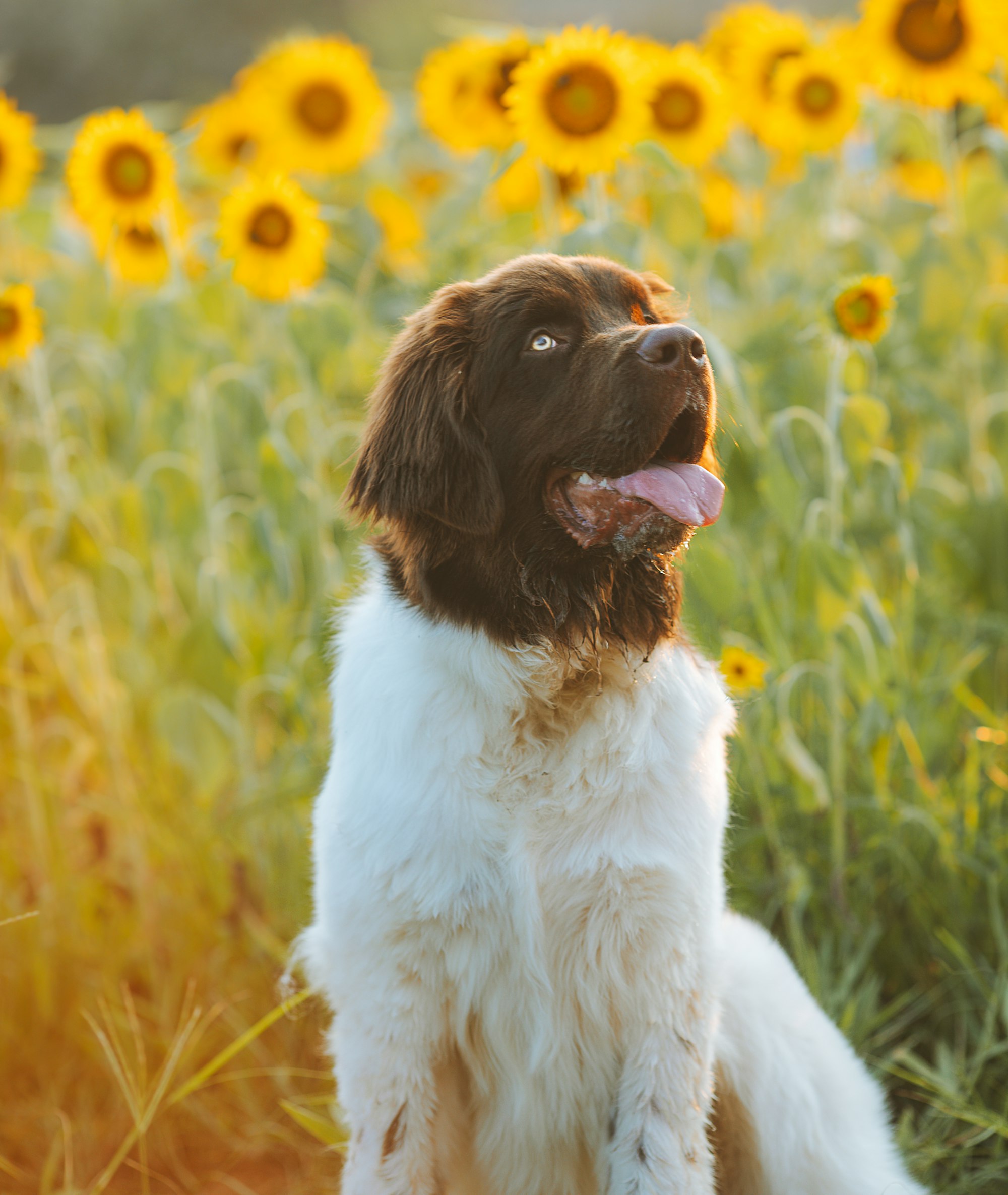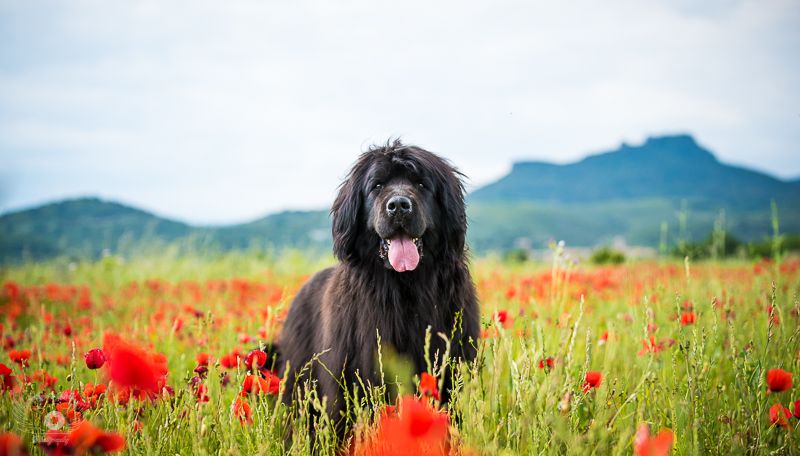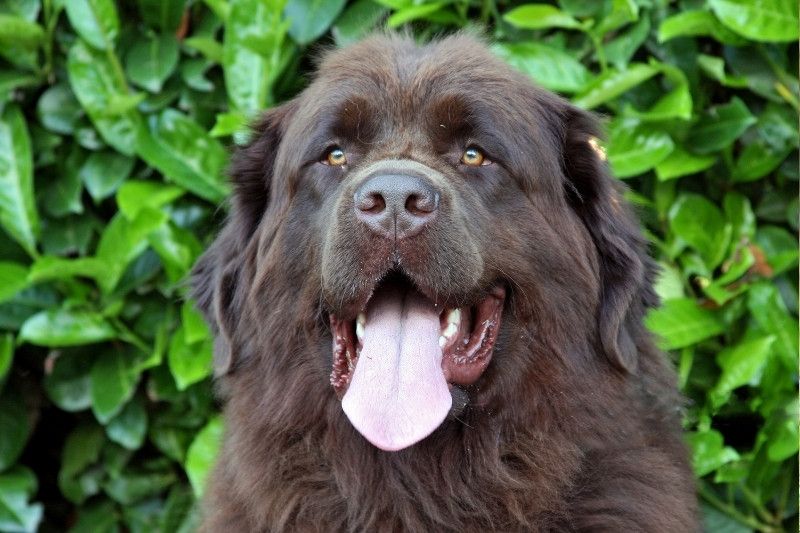Welcoming a Newfoundland dog into your family can be an exciting and rewarding experience. However, before bringing home a furry friend, it's essential to consider various factors, including the price. Understanding the elements that influence the cost of Newfoundland dogs will help you make an informed decision and ensure the well-being of your new companion.

Breed Overview: Newfoundland Dogs
Newfoundland dogs are large, gentle giants known for their strength, intelligence, and water rescue abilities. Originating from Newfoundland, Canada, these dogs have webbed feet, a thick double coat, and a friendly disposition. They are often referred to as "Newfies" and are recognized for their excellent swimming skills and natural affinity for water.
Factors Affecting Newfoundland Dog Prices
When determining the price of Newfoundland dogs, several factors come into play. It's significant to consider these factors before purchasing to ensure you find a healthy and well-bred dog that fits your budget and lifestyle.
1. Breed Quality and Pedigree
The quality and pedigree of a Newfoundland dog play a significant role in its price. Dogs from champion bloodlines, with excellent lineage and desirable traits, tend to be more expensive. Breeders who have invested time and effort into breeding high-quality Newfoundland dogs often charge a premium for their puppies.
2. Health Testing and Certifications
Responsible breeders prioritize the health of their dogs and conduct various health tests to screen for genetic diseases common in the Newfoundland breed. Dogs with health certifications and clearances, such as hip and elbow evaluations, heart and eye clearances, and genetic testing, may have a higher price tag due to the effort and expenses involved in maintaining their health.
3. Age and Availability
The age of a Newfoundland dog can impact its price. Puppies are generally more expensive than adult dogs as they require additional care, vaccinations, and training. Moreover, the availability of Newfoundland puppies in the market can also influence their price. If the breed is in high demand or if there are limited litters available, the prices may be higher.
4. Geographic Location
The cost of Newfoundland dogs can vary depending on the geographic location. Prices may differ between regions or even countries due to factors such as the cost of living, local demand, and transportation expenses. It's essential to consider these variations and research the average prices in your area.
5. Breeder Reputation and Experience
Reputable breeders who have established themselves in the Newfoundland community may charge higher prices for their puppies. Their experience, knowledge, and dedication to the breed contribute to the premium they command. It's crucial to choose a breeder with a good reputation, as they are more likely to provide healthy, well-socialized puppies.

6. Demand and Popularity
The demand and popularity of Newfoundland dogs can influence their prices. If a particular color, coat pattern, or gender is highly sought after, it may result in a higher price. Additionally, trends and media exposure can impact the popularity of certain breeds, leading to fluctuations in prices over time.
Price Range of Newfoundland Dogs
The price range for Newfoundland dogs can vary significantly based on the factors mentioned above. On average, you can expect to pay between $1,500 and $3,000 for a Newfoundland puppy. However, exceptional puppies from top-quality breeders or those with show potential can cost upwards of $5,000 or more. Adult Newfoundland dogs or rescues may be available at a lower price, ranging from $500 to $1,500, depending on their age and background.
Additional Costs of Owning a Newfoundland Dog
Owning a Newfoundland dog involves more than just the initial purchase price. It's essential to consider the additional costs that come with providing proper care and ensuring the well-being of your furry friend. Here are some additional costs you should be aware of:
Veterinary Care:
Easing fear at the vet regular check-ups, vaccinations, and preventive medications are necessary to keep your Newfoundland dog healthy. Veterinary expenses can vary depending on the specific needs and health conditions of your dog.
Food and Grooming:
Newfoundland dogs have a healthy appetite due to their large size and active lifestyle. They require high-quality dog food to meet their nutritional needs. Additionally, their thick double coat requires regular grooming, which includes brushing, bathing, and occasional professional grooming sessions. Get more insights about how to groom a dog.
Training and Socialization:
Proper training and socialization are crucial for Newfoundland dogs. Investing in obedience classes and socialization activities will help them become well-behaved, obedient, and happy companions. Training expenses may include classes, private training sessions, and training tools.
Supplies:
You will need to invest in various supplies for your Newfoundland dog, including a suitable dog bed, leash, gps dog collars, food, water bowls, puzzle toys, and possibly a crate for training and transportation purposes. These supplies contribute to your dog's comfort and well-being.
Insurance:
Consider getting pet insurance for your Newfoundland dog to help cover unexpected veterinary expenses. Insurance can provide financial protection in case of accidents, illnesses, or injuries.
Exercise and Enrichment:
Newfoundland dogs are known for their love of water and swimming. Providing opportunities for regular exercise, such as swimming or long walks, is essential for their physical and mental well-being. You may also want to invest in toys and puzzles to keep them mentally stimulated.
Miscellaneous Expenses:
There may be other miscellaneous expenses such as licensing fees, microchipping, grooming tools, and travel expenses if you plan to take your Newfoundland dog on trips or vacations.
It's required to budget for these additional costs to ensure you can provide the best possible care for your Newfoundland dog and maintain their overall health and happiness. Properly budgeting for these expenses will help you create a nurturing environment for your beloved companion.

Responsible Breeding Practices
When considering getting a Newfoundland dog, it is necessary to support responsible breeding practices. Responsible breeders prioritize the health and welfare of the dogs they breed and strive to improve the breed as a whole. Here are some key aspects of responsible breeding practices to look for:
Health Testing:
Responsible breeders perform thorough health testing on their breeding dogs. This includes screening for genetic conditions and diseases that are common in Newfoundland dogs. Examples of health tests may include hip and elbow evaluations, heart and eye clearances, and genetic testing. By breeding dogs with good health clearances, responsible breeders aim to produce healthier puppies with a lower risk of hereditary diseases.
Selective Breeding:
Responsible breeders carefully select breeding pairs based on their health, temperament, and adherence to the breed standard. They aim to produce puppies that not only meet the physical characteristics of the breed but also have stable and well-rounded temperaments.
Socialization and Early Stimulation:
Responsible breeders prioritize the socialization and early stimulation of their puppies. They expose the puppies to various stimuli, such as different environments, sounds, and people, to help them develop into confident and well-adjusted dogs. Early socialization lays the foundation for a Newfoundland dog's behavior and temperament.
Lifetime Support:
Responsible breeders provide ongoing support and guidance to puppy buyers throughout the dog's lifetime. They are available to answer questions, offer advice, and provide resources to ensure the well-being of their puppies. Responsible breeders genuinely care about the welfare of the dogs they breed and maintain a lifelong commitment to their puppies.
Ethical Practices:
Responsible breeders adhere to ethical breeding practices and follow guidelines set by reputable kennel clubs and breed organizations. They do not engage in practices that prioritize profit over the health and well-being of the dogs. Responsible breeders prioritize the welfare of their dogs above all else.
By choosing a responsible breeder, you not only have a higher chance of getting a healthy and well-adjusted Newfoundland puppy, but you also support the continuation of ethical breeding practices. Responsible breeders play a crucial role in preserving and improving the breed, and they contribute to the overall health and well-being of Newfoundland dogs.

When looking for a Newfoundland dog, take the time to research and find a breeder who demonstrates a commitment to responsible breeding practices. Visit their facilities, ask questions, and ensure that they meet the standards of responsible breeding. Your efforts in choosing a responsible breeder will result in a happy and healthy companion for years to come.
Adoption Options for Newfoundland Dogs
If buying a Newfoundland dog from a breeder is not your preferred route, adoption can be a rewarding and compassionate choice. Many rescue organizations and shelters have Newfoundland dogs in need of loving homes. Here are some adoption options to consider:
1. Local Shelters and Rescue Organizations:
Start your search by reaching out to local animal shelters and rescue organizations. These organizations often have Newfoundland dogs or mixed-breed Newfoundlands available for adoption. Contact them to inquire about the adoption process and learn more about the available dogs.
2. Breed-Specific Rescue Groups:
There are rescue groups dedicated to specific breeds, including Newfoundland dogs. These organizations focus on rescuing and rehoming Newfoundland dogs in need. They have a deep understanding of the breed and can provide valuable insights into the personalities and needs of the dogs they have available for adoption.
3. Online Adoption Platforms:
Explore online adoption platforms that connect potential adopters with rescue organizations and individuals looking to rehome their Newfoundland dogs. These platforms allow you to search for Newfoundland dogs in your area and communicate directly with current caregivers or rescuers.
4. Networking and Word of Mouth:
Spread the word among your friends, family, and community about your desire to adopt a Newfoundland dog. Sometimes, people may know of individuals who need to find a new home for their Newfoundland due to various circumstances. Networking and word of mouth can lead to unexpected adoption opportunities.
Adopting a Newfoundland dog
When adopting a Newfoundland dog, it's typical to consider the following:
Compatibility:
Ensure that the Newfoundland dog you are considering for adoption is a good match for your lifestyle, living situation, and family dynamics. Consider factors such as the dog's age, temperament, and any specific needs or requirements they may have.
Health and Behavior Evaluation:
When adopting from a rescue organization or shelter, inquire about the dog's health and behavior evaluation. The organization should provide you with information about any known medical conditions, behavioral history, and the steps they have taken to ensure the dog's well-being.
Adoption Process:
Each adoption organization or individual may have their adoption process. Be prepared to complete an application, go through an interview, and potentially provide references. Some organizations may also require a home visit to ensure the dog will be placed in a safe and suitable environment.
Adoption Fees:
Adoption fees may vary depending on the organization or individual you are adopting from. These fees often help cover the costs associated with the dog's veterinary care, vaccinations, spaying/neutering, and other expenses incurred while in the rescue organization's care.
By adopting a Newfoundland dog, you not only provide a loving home to a deserving dog but also contribute to reducing the number of dogs in shelters and rescue organizations. Newfoundland dogs available for adoption can range in age, from puppies to adults, so you may have the opportunity to give a home to a dog of any age.

FAQs
Q1. Are Newfoundland dogs expensive to maintain?
A: Maintaining a Newfoundland dog can be relatively costly due to their large size and specific needs. Expenses include food, grooming, veterinary care, and training. It's critical to consider these costs before bringing a Newfoundland into your home.
Q2. Can I find a Newfoundland dog for a lower price?
A: While the average price for a Newfoundland dog ranges between $1,500 and $3,000, it is possible to find them at a lower price. Consider adoption options or search for reputable breeders who may have adult dogs or puppies available at a lower cost.
Q3. Are Newfoundland dogs good with children?
A: Yes, Newfoundland dogs are known for their gentle and patient nature, making them excellent companions for children. However, as with any dog, supervision and proper socialization are needed to ensure positive interaction between the dog and the children.
Q4. Can I find Newfoundland dogs in shelters or rescue organizations?
A: Yes, Newfoundland dogs can be found in shelters and rescue organizations. Consider adopting a Newfoundland dog and providing a loving home to a deserving dog in need.
Q5. Do Newfoundland dogs require a lot of exercise?
A: Newfoundland dogs are generally not high-energy dogs but do benefit from regular exercise and mental stimulation. Daily walks, swimming, and interactive playtime are recommended to keep them happy and healthy.
Q6. Are Newfoundlands Lazy?
A: Newfoundlands are often perceived as being lazy due to their calm and gentle demeanor, but they are actually hardworking and active dogs. Originally bred for water rescues and hauling heavy loads, Newfoundlands have a strong work ethic and are capable of significant physical activity. While they are known for their laid-back and relaxed attitude indoors, they require regular exercise to maintain their health and happiness.
Q7. Can Newfoundlands Live in Apartments?
A: Newfoundlands can live in apartments, but it requires careful planning and commitment from their owners to meet their needs. Despite their large size, Newfoundlands are typically calm and gentle indoors, which can make apartment living feasible. However, they need ample exercise and mental stimulation to prevent boredom and maintain their health. Regular walks, playtime, and access to outdoor spaces are essential.
Q8. How Big Are Newfoundland Puppies?
A: Newfoundland puppies are quite large compared to many other breeds. At birth, they typically weigh between 1 to 2 pounds. By the time they reach 8 weeks of age, they can weigh anywhere from 15 to 25 pounds. As they continue to grow, they gain weight rapidly, often reaching 50 to 60 pounds by the time they are 6 months old.
Q9. Are Newfoundlands Protective?
A: Newfoundlands are generally not considered to be highly protective in the same way that some other breeds, such as German Shepherds or Rottweilers, might be. Instead, they are known for their gentle, friendly, and patient nature. They are very loyal to their families and are often good with children and other pets. While they may not be aggressive protectors, their large size and deep bark can be a deterrent to potential intruders. Newfoundlands are more likely to act as gentle guardians, using their calm and steady temperament to provide a sense of security to their families.
Q10. Are Newfoundlands Good with Cats?
A. Yes, Newfoundlands can be good with cats. Their gentle and patient nature typically makes them tolerant and friendly towards other animals, including cats. Proper introductions and socialization are key to ensuring a harmonious relationship between a Newfoundland and a cat. It's important to supervise their initial interactions and give both pets time to adjust to each other. Due to the Newfoundland's large size, it's also crucial to ensure that interactions are safe and that the dog does not accidentally harm the cat. With patience and positive reinforcement, many Newfoundlands and cats can coexist peacefully and even form strong bonds.
Conclusion
The price of a Newfoundland dog is influenced by various factors, including breed quality, health certifications, age, location, breeder reputation, and demand. Understanding these factors will help you make an informed decision and find a Newfoundland dog that fits your budget and lifestyle.
Remember to consider the additional costs associated with owning a Newfoundland dog to ensure you can provide them with the care they need. Whether you choose to buy from a responsible breeder or adopt from a rescue organization, welcoming a Newfoundland dog into your life is a decision that will bring joy and companionship for years to come.
Take the time to research and connect with reputable adoption organizations or individuals. Ask questions, gather information, and ensure that the adoption process aligns with your expectations. Adopting a Newfoundland dog can be a fulfilling experience that brings joy and companionship to both you and your new furry friend.
More Newfoundland dog articles:









